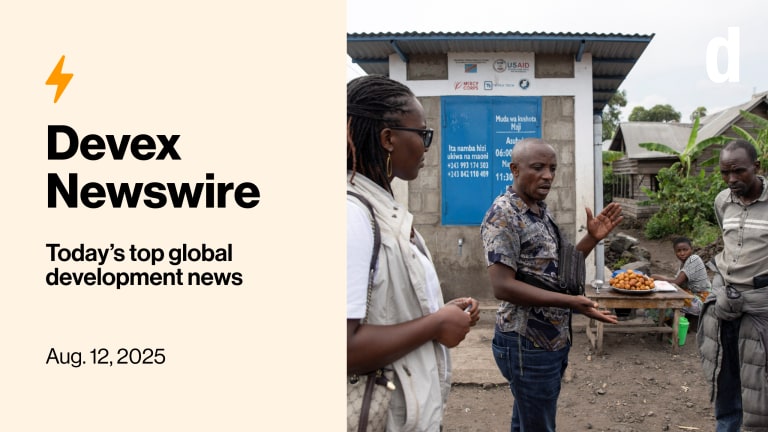
There hasn’t always been a smooth relationship between the Overseas Private Investment Corporation and the U.S. Agency for International Development, but lately the two agencies have been working together more closely.
When OPIC President and CEO Elizabeth Littlefield assumed her post in 2010, she admitted there had been some “competition” with USAID.
“We’ve been working hard to lean into that and really take that and turn it into an asset, an asset that means we are actively referring business back and forth,” she said. “In a moment when the needs in the developing world far exceed the capacity of anything anybody could dream of putting together … everyone should be encouraged to go at it and do what they can.”
For about the last year and a half, both U.S. government agencies — especially departments working with the Development Credit Authority — have been meeting regularly to share the projects and proposals in their pipelines, according to Littlefield said, and the result has been an increasing back-and-forth refer all of deals.
The instruments and capabilities of USAID and OPIC are different and complementary: USAID can work with local banks and local currency requirements that OPIC can’t do and OPIC can handle deals that might be too large or have a higher guarantee than the DCA.
“There’s plenty of room for everybody and I honestly think that every government agency should be as creative and innovative as it can in using every possible tool and flexibility and authority to do as much as it can,” Littlefield said.
Opportunity in Africa
Devex spoke with the OPIC chief last week at the agency’s first IMPACT awards, where OPIC recognized the work of several of its clients in the areas of renewable resources, access to finance, private equity, critical infrastructure, development impact and American small business.
The awards, something Littlefield has wanted to implement since she took over the agency’s leadership, are a way to highlight the diversity and breadth of OPIC’s partnerships, she said.
So how to move forward?
OPIC sees a big growth opportunity in the funding increase proposed by the Electrify Africa Act, a bill which calls on Congress to support a comprehensive policy for sub-Saharan Africa energy development with the aim of promoting access to electricity for at least 50 million people by 2020. A larger budget would allow the agency to reinforce internal risk management, put together a few more teams out in the field, and do more outreach to the many businesses that don’t know about OPIC, Littlefield said.
OPIC would maintain the same level of selectivity, but it could get more inquiries than the about 2,000 received last year, and be able to turn more of those into deals, with more teams at work.
“We’re a very small under-scaled model that is profitable and helping U.S. business and doing development,” Littlefield said. “We could grow many times our size, prudently over time of course, and therefor have more development impact, help more US businesses and generate more money for the tax payer. It’s kind of like just taking the machine and amping it up.”
Join Devex, the largest online community for international development, to network with peers, discover talent and forge new partnerships — it’s free. Then sign up for the Devex Impact newsletter to receive cutting-edge news and analysis every month on the intersection of business and development.








